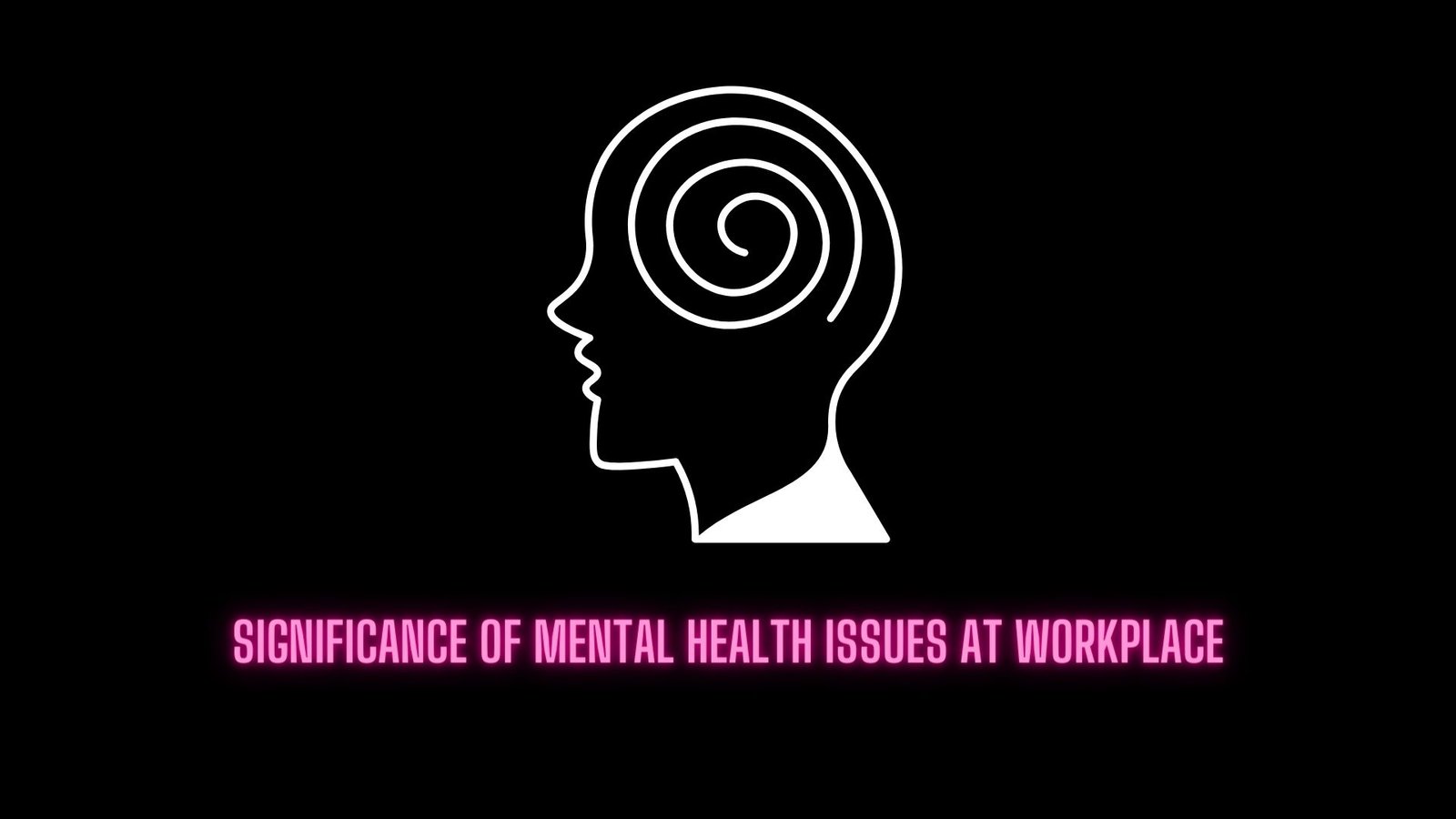Significance of Mental Health Issues at Workplace
Mental health issues at the workplace are a significant concern that can affect employees’ well-being, productivity, and overall organizational performance. Several mental health issues commonly arise in work environments, including:
- Stress: Work-related stress is a prevalent mental health issue caused by excessive workloads, tight deadlines, high-pressure environments, and lack of control over work-related factors. Chronic stress can lead to burnout and negatively impact both physical and mental health.
- Anxiety: Anxiety can arise from various work-related factors, such as job insecurity, fear of failure, challenging work relationships, or a hostile work environment. Anxiety can impair concentration, decision-making, and performance.
- Depression: Depression can result from prolonged stress, job dissatisfaction, or a lack of work-life balance. Symptoms may include persistent sadness, loss of interest, fatigue, and changes in sleep and appetite.
- Burnout: Burnout is a state of emotional, physical, and mental exhaustion caused by chronic workplace stress. It is characterized by feelings of cynicism, detachment, and reduced efficacy.
- Work-Life Imbalance: Difficulty balancing work responsibilities with personal life can lead to mental health issues. Long working hours, excessive overtime, and lack of flexibility can impact an employee’s well-being and family life.
- Harassment and Bullying: Workplace harassment, including verbal, emotional, or physical abuse, can cause severe mental distress. Bullying by colleagues or supervisors can lead to anxiety, depression, and a negative work environment.
- Isolation and Loneliness: Feelings of isolation and loneliness can occur in work environments with poor social connections or remote work setups, negatively affecting mental health.
- Substance Abuse: In some cases, employees may turn to alcohol or drugs as a coping mechanism for dealing with workplace stress and mental health issues.

Addressing mental health issues in the workplace is crucial for creating a healthy and supportive work environment. Employers can take several steps to promote employee well-being and mental health:
- Create a Supportive Culture: Foster an inclusive and supportive workplace culture that prioritizes employee well-being and encourages open communication about mental health.
- Mental Health Training: Provide training to managers and employees on mental health awareness, recognizing signs of distress, and offering support.
- Workload Management: Ensure that workloads are reasonable and realistic to prevent excessive stress and burnout.
- Flexible Work Arrangements: Offer flexible work options, such as remote work or flexible hours, to promote work-life balance.
- Employee Assistance Programs (EAPs): Provide access to EAPs or counseling services for employees to seek confidential support for mental health concerns.
- Anti-Harassment Policies: Establish clear policies and procedures to address workplace harassment and bullying.
- Encourage Breaks and Time Off: Encourage employees to take regular breaks and use their allocated vacation time to recharge and prevent burnout.
- Reduce Stigma: Create an environment where employees feel comfortable discussing mental health issues without fear of stigma or discrimination.
By proactively addressing mental health issues in the workplace, organizations can foster a healthier and more productive work environment, leading to increased job satisfaction and employee retention.
Safety Managment is prime focus in Civil Aviation – Know More

